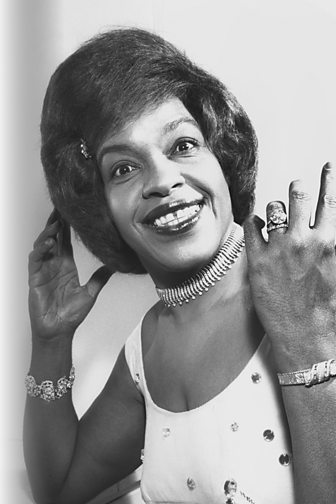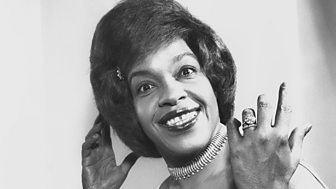Coronation Rag
Winifred's 'honky tonk' classic was a first for the post-Windrush generation
| Fact title | Fact data |
|---|---|
| Release date: |
April 1953
|
| Written by: |
Winifred Atwell
|
| First recorded by: |
Winifred Atwell
|
Synopsis
Mention Winifred Atwell these days and, if the name’s recognised at all it’s usually with a snigger. For if there’s one thing Winifred’s remembered for it’s for starting the strange craze for honky tonk piano which took place in the ‘50s in Britain. Coming to these shores from Trinidad she’d learned to play in a ragtime style for American servicemen stationed at a base in Piarco. But rather than just being a novelty player, Winifred was prodigiously talented, enrolling in the Royal Academy of Music where she became the first female pianist to be awarded the Academy's highest grading for musicianship. It was only to support her studies that she played rags at London clubs and theatres.
Discovered by impresario Bernard Delfont she quickly became renowned for her dextrous ‘rags’ such as ‘Cross hands Boogie’ and, following the purchase of a proper old ‘tack’ piano for 30 shillings, she single-handedly kickstarted the craze for a jangly ‘pub’ style of playing that went on to be a goldmine for artists such as Russ Conway, Mrs Mills and, much later, Bobby Crush.
Truth be told, Coronation Rag isn’t a spectacular piece of music or even one of Winifred’s best-loved tunes. That honour probably belongs to her version of ‘Black and White Rag’ or ‘The Poor People of Paris’. But what it represents is the point at which Britain began to finally emerge from the trauma of the war years and celebrated its new monarch. And more importantly it represents the first true acknowledgement of the multi-cultural society engendered by our ‘Empire’ and which would affect all popular culture in decades to come.
Winifred was hugely successful by the time ‘Coronation Rag’ hit #5 in the charts. She’d been the first black woman to have a number one. She’d been the first black person to sell a million records and at the height of her success she sold over 30,000 records a week. Her hands were famously insured for £40,000. And, despite the corniness of much of her output, she was a true trailblazer for the post-Windrush generation. She even owned one of the first hair salons for black women in Brixton’s Railton Road. ‘Coronation Rag’ marks the point where our small island took pride in being at the centre of a vast patchwork of influences and tastes.
Related Links


